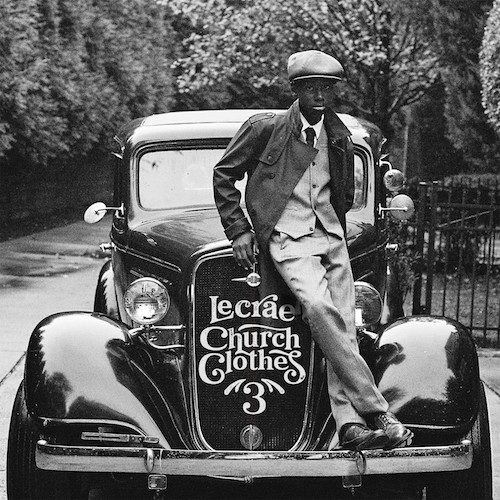In the U.S., there is Christian music and there is secular music, and never the twain shall meet. For a variety of reasons, artists in the Christian scene rarely crossover into the mainstream, and those that do often have to shed most of their explicitly Christian trappings before being accepted by mainstream audiences. Even Kendrick Lamar, a born again Christian who raps a lot about his faith, keeps his religious references more elliptical than explicit.
Lecrae is one of the few Christian artists who has been able to get mainstream commercial and critical success. He does this by being good at his craft and making music that manages to speak to how his faith informs his life in ways that are accessible even to people who may not share his religious beliefs. “Church Clothes 3,” his latest mixtape, is an attempt to reconcile his Christian faith with the Black Lives Matter movement, the rap world, and the current political atmosphere in the United States.
It starts off with “Freedom,” a gospel-tinged track that argues that African-Americans are in many ways still enslaved. Throughout “Church Clothes 3” Lecrae keeps coming back to this idea that people are strapped in a cycle of poverty, crime, and hedonism that leaves them disempowered. He does it with empathy and compassion rather than judgement. He raps:
“I gave Chief Keef my number in New York this summer
I told him ‘I could get you free’, I’m on my Nat Turner
Back burner, cooking up a fat burger
While we shuck and jive to a song about a crack murder
Know we need a change but we threw it on the stage
Got some money and a soul and neither one of us saved
Slaves, get free”
“Gangland” is about how street gangs originally replaced the social institutions than African-Americans were excluded from, only to become another mechanism of control. Guest MC Propaganda raps about the divide between White and Black Christians:
“There’s a high school in Alabama named after Robert E. Lee
And it’s 89% black, you don’t see the irony?
What it do to a psyche, it’s simple, you don’t like me
What I’m supposed to do now?
Delusional calling that system criminal justice
Where the rich and the guilty are safer than the poor and the innocent
Why would we listen?
When American churches scuff their Toms on our brother’s dead bodies
As they march to stop gay marriage
We had issues with Planned Parenthood too
We just cared about black lives outside the womb just as much as in”
Lecrae also raps about being a Grammy-award winning artist, and negotiating the world between Christian and mainstream rap:
“I’m hearing screams and they saying we sold out
But I’m hearing screams from the stands cause we sold out, it’s so loud
I got one life so I spend time trying live ’til the next one
If you don’t like it, cool
It is what it is”
E-40 shows up on “Can’t Do You,” rapping over what sounds like a DJ Mustard beat about keeping your chin up. It’s a play on the idea of getting high that doesn’t totally work, but it is interesting to hear a club rap song about being proud of yourself. Lecrae also offers up a love song (“Forever”) about finding your forever woman, which is in stark contrast to the usual rap song.
Production on the album is handled by S1, Epikh Pro, Shindo, Mykalife, Ryan Righteous, Black Knight, and GAWVI. The beats range from the bombastic gospel of “Freedom” to the trap of “Gangland,” to more subdued tracks like “Cruising” and “It Is What It Is.” The beats are all proficient, and the album sounds good, but none of them really stood out to me. Maybe it was they were a bit too polished for my tastes, but they didn’t do much for me.
In trying to figure out why “Church Clothes 3” wasn’t connecting with me, I realized that Lecrae reminds me of Macklemore and Ryan Lewis, another artist I admire but do not enjoy listening to. While Lecrae and Macklemore are very different artists, they both approach mainstream hip-hop through a side door, and make rap music that is more indie oriented than street. Both artists try to balance being good rappers with having a Message they want to impart, and sometimes struggle under the weight of their own sincerity and earnestness. And “Church Clothes 3” is nothing if not earnest, in a way that is both refreshing and sometimes challenging.
The bottom line is that Lecrae is a talented rapper who provides much-needed counter programming to the contemporary rap scene. He is rapping about real things and real issues, and grappling with his faith and his community and how to be a positive force. He is not just regurgitating scripture, and he rarely comes off as judgmental or holier-than-thou.

